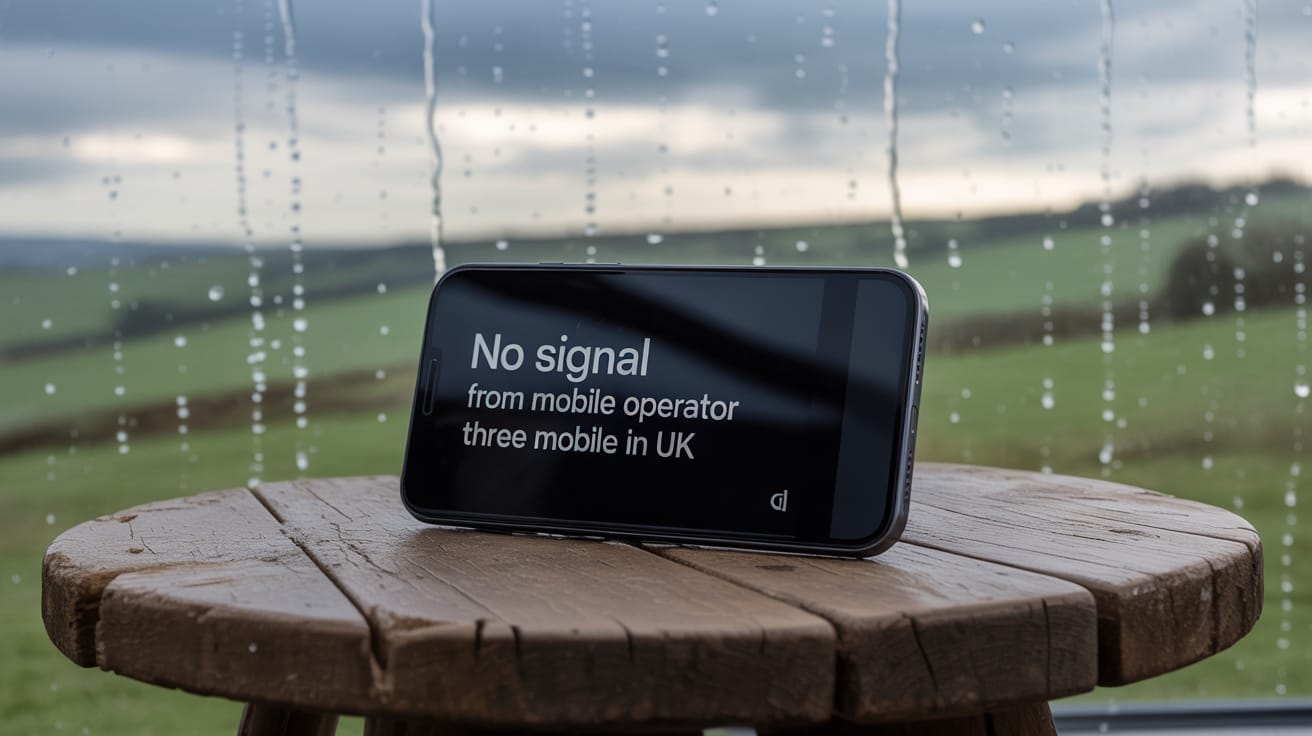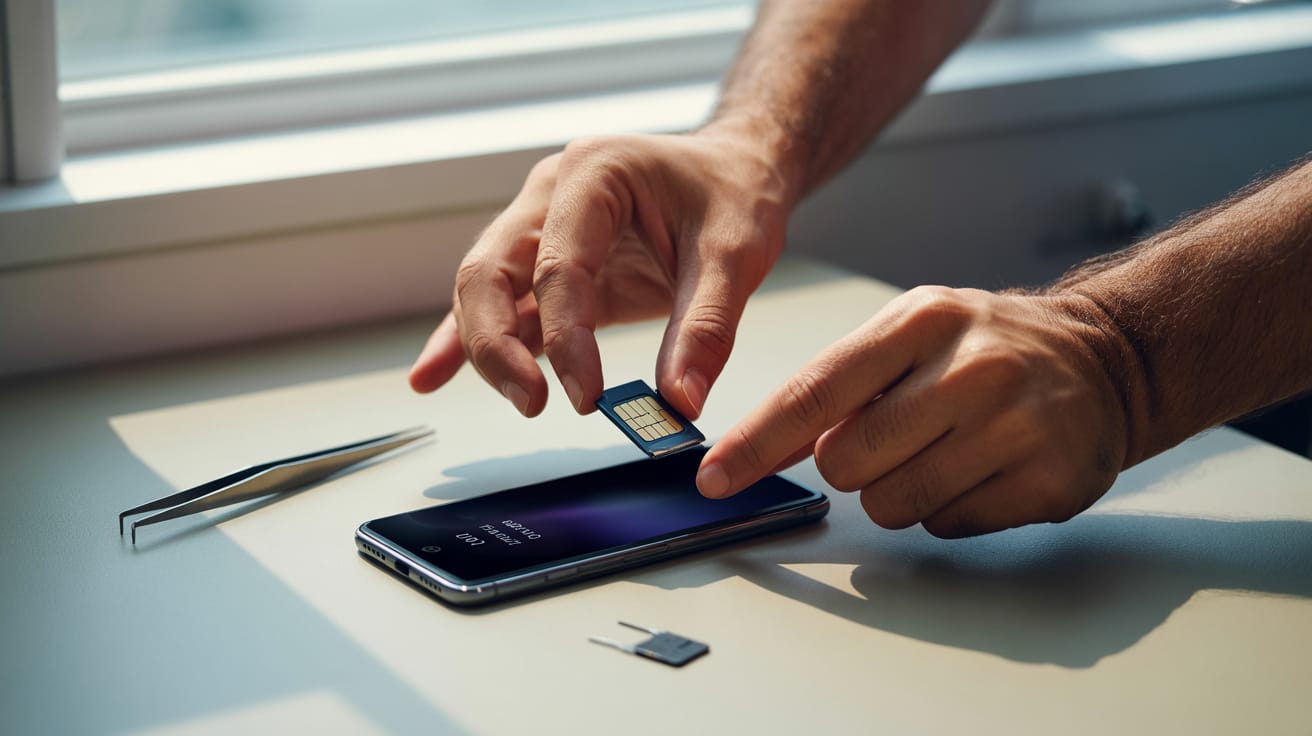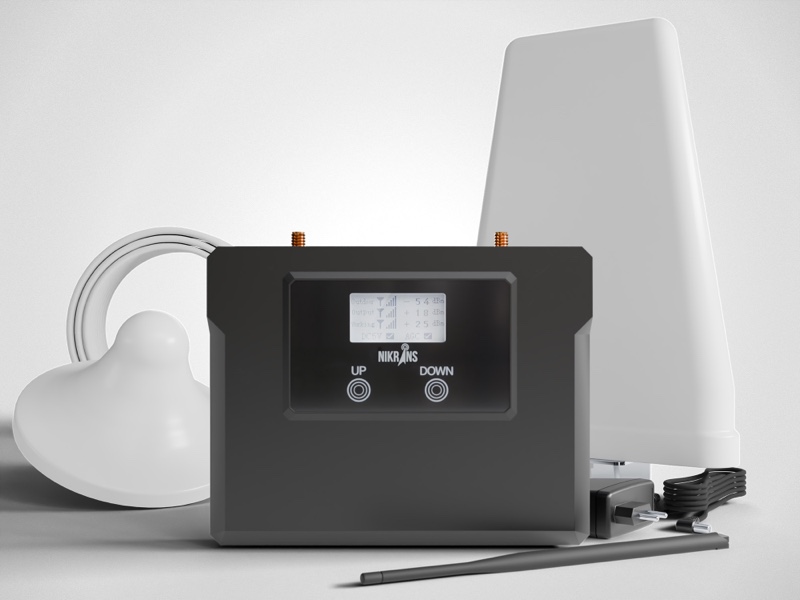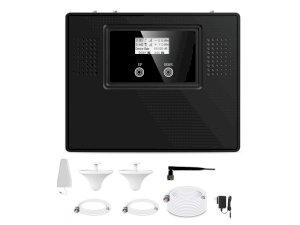Issues with mobile network reception, specifically no signal, are an unpleasant fact of life for many people. In modern society, people expect mobile reception as a bare minimum for almost every activity, including communicating with friends and family, attending to work obligations, and accessing various services. As a mobile customer on Three in the UK, you may face challenges with signal and data, occasional network outages, or other issues from time to time.

The intent of this guide is to help you understand, troubleshoot, and resolve any Three signal or network issues with confidence. We will cover initial diagnostics to determine if the issue is network-related or device-specific, explore common types of signal problems, offer quick fixes and advanced troubleshooting steps, discuss long-term hardware solutions like signal boosters, and provide guidance on contacting Three support and understanding your rights as a consumer. Whether you’re dealing with a sudden Three no signal situation or a persistent no signal with Three issue, this guide will equip you with the information you need to get back online.
Urgent Diagnostics: Is It A Problem With Three's Network Or My Device?
Before heading for complex solutions, trying to fix the problem by determining if the issue relates to Three's network or whether the problem lies with the phone, the SIM card, or the settings configured on the phone is helpful.
- Checking Three’s Current Network Status (Is Three down today?)
- Recognizing Local vs. National Problems
- Checking Your SIM Card and Tariff Plan
- Main Types of Signal and Network Problems with Three
- Step-by-Step Troubleshooting: DIY
- Long Term Considerations and Equipment to Improve Three Signal
- Contacting Three Support and Understanding Your Rights
- Recent Statistics and Trends About Three’s UK Network Performance
- Frequency Bands and Mobile Technologies (4G/5G)
- Conclusion
mobile signal booster Nikrans LCD-300GD
+ FREE Lightning Surge Protector
for United States
4.9/5 — 278 ReviewsChecking Three’s Current Network Status (Is Three down today?)
The first stage is to ascertain whether there are any issues with Three's network in the location you are or nationally, any unplanned repairs, or ongoing unplanned repairs which could explain the problems you are currently experiencing. This is helpful in explaining the sudden loss of signal.
How to Check for Mass Outages
Several resources can provide information about Three’s network status:
- Look out for queries like no signal on Three today, no Three signal today. These usually come up if there is a trending issue.
- OpenAI trending queries can also indicate if there is any specific problem within your location. For example, if you’re facing an issue in London, you may also search for Three mobile no signal London.
Official Three Resources for Checking Network Status
Three’s Network Status Page
Head to Three’s page and look for a “Network Status Checker” or “Service Status” section. Usually, such a page contains up-to-minute information on all active outages or maintenance work.
Three Support Twitter Account
Follow Three’s official support account on Twitter (often labelled as @ThreeUKSupport or similar). They often post updates about network issues and respond to customer queries.
DownDetector UK
Websites like DownDetector track user-reported outages and can provide a good indication of whether many other users are experiencing similar problems with Three.
Recognizing Local vs. National Problems
Understanding the difference between a localized problem and a national outage is very important. Localized issues could be caused by a cell tower or network congestion in your region. National outages indicate a larger problem with Three’s core infrastructure. Keep an eye out for no Three signal during the whole day, as a recurring theme can point to something more than just a short issue.
How to Check Three Network Coverage in Your Area (Three Network Coverage Check)
While the network may be up and operational, the signal strength and range you get can differ greatly depending on your location.
Using Three’s Coverage Map
Use Three’s official coverage map to check the availability of 5G, 4G, and GSM signals at your address. You can typically find this map on Three’s website by searching for “Three Network Coverage Check” or “Coverage Checker.” The map will show the expected signal strength for different technologies in your area.
Why Coverage Can Vary Inside Buildings
Mobile signal strength may be much weaker indoors due to the building materials blocking radio waves. Signal penetration is also greatly reduced by thick walls, metal cladding, insulation and even tinted windows.
Important information
Consider the type of construction of your building when assessing indoor coverage. Older buildings with thick stone walls will likely have worse signal penetration than modern buildings with lighter materials. Similarly, being in a basement flat means you’re underground and very susceptible to signal blockage.
Checking Your SIM Card and Tariff Plan
Sometimes, the signal problem isn’t related to Three’s network or your location but to an issue with your SIM card or account.
- Ensuring Your SIM Card is Active
First, make sure your SIM card is properly inserted into your device. Take out the SIM card, check the card for any damage and re-insert it properly. - Checking SIM Activation
If you have a new SIM card, it might not be activated yet. Follow the activation instructions that came with your SIM card. - Verifying Contract and Data Limits
Make sure the contract has not expired, and also confirm if there is any data or minute left. If you’ve reached your data limit, your internet speed might be significantly reduced, making it seem like you have no signal. Contact Three or check your account online to verify your contract status.
Main Types of Signal and Network Problems with Three
To figure out how to fix your signal, it's important to know what's causing the problem. If you're a Three customer in the UK, here are some common issues you might run into:
Total Signal Loss (No Signal/Service)
This is a really annoying one – your phone just says No Signal or something similar, and you can't connect at all.
What happens
You can’t make or receive calls, send texts, or use data.
Why it happens
- Out of Coverage Area
You can be in a place where Three doesn't have coverage, e.g., remote rural areas or areas in the mountains. - Hardware Failure
Your phone might have an antenna or other internal hardware problem that prevents it from getting a signal. - Inactive SIM Card
Your SIM may not have been activated properly, or deactivated due to some problems. - Major Network Outage
There could be a major problem with Three's network infrastructure causing widespread outages.
Spotty or Fading (Weak / Poor / Dropping Signal)
So, you've got some signal, but it's not great? It's weak, cuts in and out, which makes calls sound bad and the internet crawl.
What happens
You're probably searching for stuff like Three low signal. Your phone might only show one or two bars, and you're dealing with dropped calls, messed-up audio, and super-slow internet.
Why it happens
- Too Far Away
The farther you get from a Three cell tower, the signal weakens. Plain and simple. - Stuff in the Way
Buildings, trees, hills – basically anything big can block or weaken the signal. - Too Many Users
When lots of people are on Three at once (like during rush hour), the network can get overloaded. This slows things down and drops connections. - Other Interference
Other gadgets or electrical stuff can mess with your mobile signal.
Problems with Mobile Data (No Internet / Slow Data)
In this case, you can make calls and send texts, but getting online is painfully slow or just doesn't work.
What happens
You probably see a 4G or 5G symbol, but websites take forever to load (or don't load at all), and apps can't seem to connect.
Why it happens
- Wrong APN Settings
Your phone's internet settings (APN) might be messed up, which stops it from connecting to the network for data. - Mobile Data is Off
You might have switched off mobile data in your settings without realizing it. - You're Out of Data
You might have used all your monthly data, so now speeds are super slow, or you can't get online at all. - Frequency Problems
There could be some issues with the specific radio waves your phone is using.
Special Cases
You might encounter situations like 4 bars of signal Three but no connection, or wonder why there is Three signal but no service. This often indicates an issue with the data connection specifically, even though the voice signal is present.
Location- and Condition-Dependent Problems
These issues are specific to certain locations or circumstances.
Problems Abroad
When roaming in other countries, you might experience no Three signal abroad due to issues with Three’s roaming agreements or network compatibility.
Problems in Specific Urban Areas
Some users report issues in certain urban locations, leading to searches like Three mobile no signal London. This could be due to network congestion, building density, or other localized factors.
Problems in “Dead Zones”
Certain areas, such as basements, elevators, or very walled-up buildings, are "dead zones" with poor or no mobile signal.
Step-by-Step Troubleshooting: DIY

If you have problems with Three signal, the following are step-by-step DIY things you can do to try to solve the issue without the need for technical support. Start with the quick fixes and move to more advanced settings and diagnosis.
Basic Quick Fixes
These are simple steps that normally fix temporary connectivity issues.
- Restarting Your Phone
This is the first and often best action. Power your phone off entirely, wait for 30 seconds, and then turn it back on. This might eliminate temporary software glitches and re-establish a fresh connection to the network. - Reinserting Your SIM Card
Remove your SIM card from your phone, carefully inspect it, and then reinsert it securely. Ensure it’s properly seated in the SIM card tray. - Flipping Airplane Mode On and Off
Try turning Airplane Mode on for about 15 seconds, then turn it back off. This makes your phone look for networks again, which can fix connection issues. - Checking Your Battery
A low battery can sometimes affect signal reception. Make sure your phone has sufficient battery charge. - The 80/20 Rule
In many cases, 80% of temporary mobile signal issues can be resolved with a simple restart.
Device and Network Settings
To enhance network connectivity you need to modify your phone’s settings by following these steps.
Executing Mobile Firmware Enhancement
Ensure both iOS and Android operating systems on your phone remain current through updates. Software updates frequently deliver bug fixes alongside enhancements to network connectivity.
Resetting Network Settings
The system reverts every Wi-Fi password along with Bluetooth pairing information and cellular network settings to default states. The system retains all personal data without deletion. Your phone’s settings menu might list this option under “General,” “Connections,” or “Reset” depending on your specific model.
The process of choosing networks manually
Navigate to your phone’s settings menu and access “Mobile Networks” (or its equivalent) then disable the “Automatic” network selection option. Your device initiates a network search sequence to detect available connections. Choose “Three” or a Three roaming partner from the available options. Your phone can avoid connecting to weaker or incorrect networks through this method.
Performing Examination and Modification of APN Configurations
Access Point Name (APN) settings are crucial for mobile data connectivity. Verify that your APN settings are correctly configured for Three. You can find the correct APN settings on Three’s website or by contacting their customer support.
Disable Virtual Private Network Services (If Activated)
If you’re using a Virtual Private Network (VPN) app, try disabling it temporarily. VPNs can sometimes interfere with network connectivity.
Checking Roaming Settings (For Problems Abroad)
When travelling abroad, make sure that data roaming is enabled in your phone’s settings.
Optimizing Location and Behavior
Sometimes, simply changing your location or usage habits can improve signal.
- Moving to a Better Location
Move closer to a window, go outside, or try moving to a higher floor in a building. These actions can help reduce signal blockage. - Executing Wi-Fi Calling
Activate Wi-Fi Calling if both your phone and Three plan support it. The system enables communication through calls and texts using your home or office Wi-Fi network which eliminates the requirement for mobile signal dependence entirely. - How to Enable Wi-Fi Calling
Accessing Wi-Fi Calling on iPhones requires navigating through “Settings” followed by “Phone” and then selecting “Wi-Fi Calling. ” Android devices display the setting in different places yet it typically appears within “Connections,” “Mobile Network,” or “Calling Settings”. Wi-Fi Calling enhances indoor call performance to deliver exceptional quality and dependable connections.
SIM Card and Phone Diagnostics
These steps involve testing your SIM card and phone to identify hardware issues.
Trying Your SIM Card in Another Phone
Got a spare phone lying around? Or maybe you can borrow one from a friend? Toss your SIM card in there — ideally into something unlocked, or at least a phone that plays nice with Three. If your SIM suddenly springs to life, guess what? Your original phone’s the troublemaker.
Trying Another SIM Card in Your Phone
Take someone else’s SIM — doesn’t matter if it’s a mate’s or from a different network — chuck it into your phone. If that one works but yours doesn’t, your Three SIM’s probably the culprit. Yeah, it’s a process of elimination, but it works.
Checking Your Phone for Physical Damage
Take a good look at your phone. Any obvious dings or cracks, especially near the antenna bits (top or bottom, usually)? Physical damage there can seriously mess with your reception.
Long Term Considerations and Equipment to Improve Three Signal
Considering your mobile Three signal issues persist despite following all the recommended steps and fix attempts, one possible approach is to look into adopting a long-term strategy or using more specialized equipment to help improve the signal strength.
Mobile Signal Boosters
This specialized mobile phone equipment is useful for improving the indoors coverage by utilizing the existing signal for the indoors coverage to be better. A word of caution is necessary for the mobile signal booster users and that is to be very careful about the regulations concerning their use.
What They Are
A mobile signal booster or cell phone signal booster, also known as cellular repeaters are electronic devices that are meant to rectify mobile signals by improving the calls, data and general mobile services impacted by poor reception.
How They Work
A complete signal booster comprises an external weak signal receiving antenna, signal amplifier and finally the internal antenna that broadcasts the improved signal for a certain area. A considerable portion of signal boosters are of the type that use external antennas.

Types of Boosters:
- Home Boosters: Designed to improve signal coverage within a home or office.
- Vehicle Boosters: Designed for use in cars, trucks, and other vehicles.
- 4G/5G Boosters: Specifically designed to boost 4G and 5G signals for faster data speeds.
Three Home Signal Solutions and Alternatives
Three previously offered a “Home Signal” device (also known as a femtocell) that used your home broadband connection to create a localized 3G signal. However, this service is no longer actively supported.
What Was Three Home Signal
The three home signal was a device that created a localized 3G signal using your home broadband.
Why Three Home Signal is No Longer Supported
Three has discontinued the Home Signal service, and these devices are no longer actively sold or supported. If you still have a three home signal no signal flashing green, it indicates a problem with the device or your broadband connection.
Possible Alternatives
The only real substitute to Three Home Signal is Wi-Fi Calling, as this enables you to make calls and send texts over your home Wi-Fi. This will often work perfectly, if your broadband is any good.
Optimizing Your Home Wi-Fi Network
If your primary issue is three home signal no internet, it might actually be a problem with your home internet connection, rather than your mobile signal.
Wi-Fi Repeaters
Lots of homes have dead spots where the Wi-Fi just doesn't reach. Wi-Fi repeaters and mesh systems can really help fix that. They boost your current network's range, making the signal stronger and more reliable all over your house. This is great for things like video calls or watching videos online, where you really need a steady connection.
Quick note: Mobile Booster vs. Wi-Fi Repeater
Don't mix up mobile boosters and Wi-Fi repeaters. Mobile boosters make your cell signal stronger, so you get better reception on your phone. Wi-Fi repeaters, on the other hand, spread your Wi-Fi network further, fixing internet connection issues, not cell signal problems. Pick the one that deals with the type of signal you want to improve.
Contacting Three Support and Understanding Your Rights

If you’ve exhausted all other options, contacting Three support is the next step. Understanding your rights as a consumer is also essential.
When to Contact Three Support
- After Trying All Self-Help Methods
Contact Three support only after you’ve tried all the troubleshooting steps outlined in this guide. - During Prolonged Outages
If you’re experiencing a lengthy outage that isn’t reflected on Three’s official network status page, contact support to report the issue.
Channels for Contacting Three
If you're experiencing no signal on your Three mobile network, here’s how you can quickly get in touch with Three’s customer support:
From a Three phone:
Dial: 333 (Free, available Mon–Fri: 8am–8pm, Sat–Sun: 9am–6pm)
From any other phone:
Call: 0333 338 1001 (Standard UK landline rates apply)
From abroad:
Call: +44 7782 333 333 (Roaming charges may apply)
Online Support Options:
- Live Chat: Visit Three.co.uk and use the Live Chat feature (bottom right corner)
- My3 App: Log in to the My3 app (iOS or Android) to manage your account or request support
- Twitter Support: @ThreeUKSupport
- Facebook Help: facebook.com/ThreeUK
Before You Contact Them – Try This:
- Check Three Network Status: Three Network Checker
- Turn Airplane Mode on/off or restart your device
- Try your SIM in another phone (to rule out device issues)
- Enable Wi-Fi Calling for calls over Wi-Fi when there’s no signal
- Make sure your APN settings are correct (especially abroad)
If you're consistently without signal, you can cancel your contract by requesting a PAC or STAC code:
- Text PAC to 65075 (to keep your number)
- Text STAC to 75075 (if you don’t want to keep your number)
Recent Statistics and Trends About Three’s UK Network Performance
Recent data from sources like Ofcom, DownDetector, and consumer tech news outlets show a mixed performance for Three UK:
- According to Ookla's Q1–Q2 2025 report, Three ranks as the fastest 5G provider in the UK, with average download speeds exceeding 230 Mbps.
- However, network reliability remains a concern. In June and July 2025, DownDetector logged over 9,000 complaints in a single day, mostly related to call failures and signal loss.
- Common user complaints include:
- “No signal” (notably in London, Newcastle, Northern England)
- Inconsistent mobile data coverage, especially indoors or in rural districts
- Compared to competitors:
- EE and Vodafone are typically viewed as more consistent in coverage, especially for voice services.
- Three has shown better speeds in 5G but worse reliability in voice and call services during outages.
Summary of Recent Large-Scale Outages
Notable incidents from 2024–2025:
- 25 June 2025
A major voice network outage affected up to 9,000+ users across the UK. Calls and SMS were disrupted for over 12 hours, with London and Northern England most affected. - 23 January 2025
Three experienced a nationwide outage during Storm Eowyn. Voice calls and emergency numbers were unreachable for over 17 hours. - February 2024
Over 12,000 DownDetector complaints during a service-wide failure involving mobile data and voice.
Frequency Bands and Mobile Technologies (4G/5G)
Overview of Mobile Technologies
| Technology | Typical Speeds | Latency | Coverage | Building Penetration |
|---|---|---|---|---|
| 4G LTE | 10–100+ Mbps | Low | Excellent | Very Good |
| 5G | 100 Mbps–1 Gbps+ | Very Low | Still limited in some regions | Poor to Moderate |
- 3G is now phased out in most areas by Three (2024–2025).
- 4G remains the mainstay for voice (via VoLTE) and reliable coverage.
- 5G offers incredible speed and latency, but struggles indoors due to high-frequency limitations.
Three UK Frequency Bands
4G (LTE):
- 700 MHz (Band 28)
- 800 MHz (Band 20)
- 1500 MHz (Band 32)
- 1800 MHz (Band 3)
- 2100 MHz (Band 1)
5G (NR):
- 700 MHz (n28) — Long range, decent indoor penetration
- 2100 MHz (n1) - Wide coverage, moderate building penetration
- 3.5 GHz (n78) — High-speed but poor indoor performance
- 3.7 GHz (n77) — Reserved for future rollout
How frequency affects performance:
- Low frequencies (700–800 MHz): Travel further, penetrate buildings better
- High frequencies (3.5–3.7 GHz): Provide faster speeds but can be blocked by walls or windows
Compatibility and Device Limitations
Not all phones (especially imported or older ones) support all of Three’s bands.
For example, some budget or older models lack Band 32 or n78, which affects 4G/5G connectivity.
Users should:
- Check device specifications for UK band compatibility
- Enable VoLTE and WiFi Calling if supported
- Review Three's device support list if signal problems persist
Differences Between Data and Voice Service
It's possible to have strong signal bars (voice coverage) but slow or no mobile data.
Reasons include:
- High network congestion
- Device connected to less efficient band
- Misconfigured APN settings
Why Signal Bars Can Be Misleading
Signal bars are not precise — they reflect general connection strength, not speed or stability.
Two phones on the same network can show different bars due to:
- Different chipsets
- Antenna design
- Background apps using data
Pro tip:
Use Field Test Mode on iPhone/Android to see:
- Signal in dBm (e.g., -90 dBm = good, -110 = weak)
- Active frequency band (e.g., Band 3 or n78)
Apps like OpenSignal or NetMonster can also reveal live signal strength and network usage.
Conclusion
Fixing signal and network problems usually takes time and a bit of trying. Going through the steps in this guide can really help you get better signal on your Three phone and keep a solid connection. Just keep at it – if you tackle each possible issue one by one, you'll probably find something that works.






